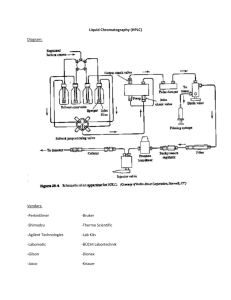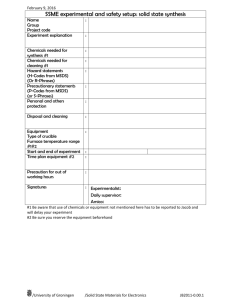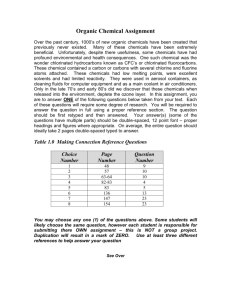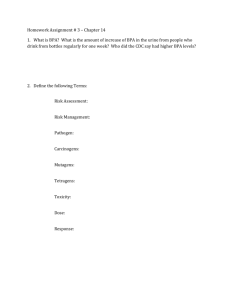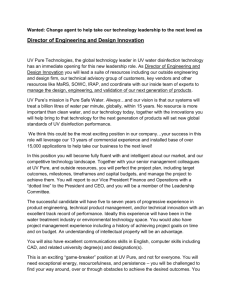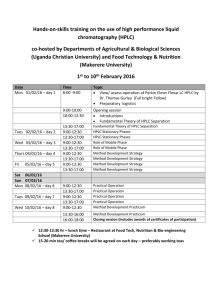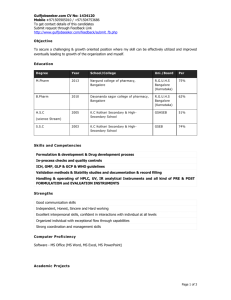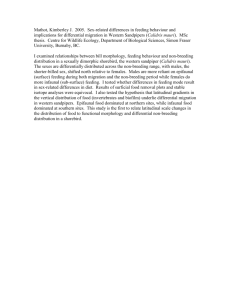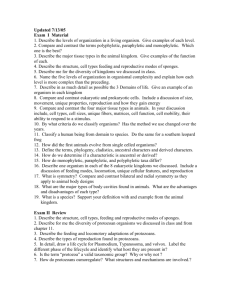Supporting methods S1. Identification of tenuifolin in Radix
advertisement
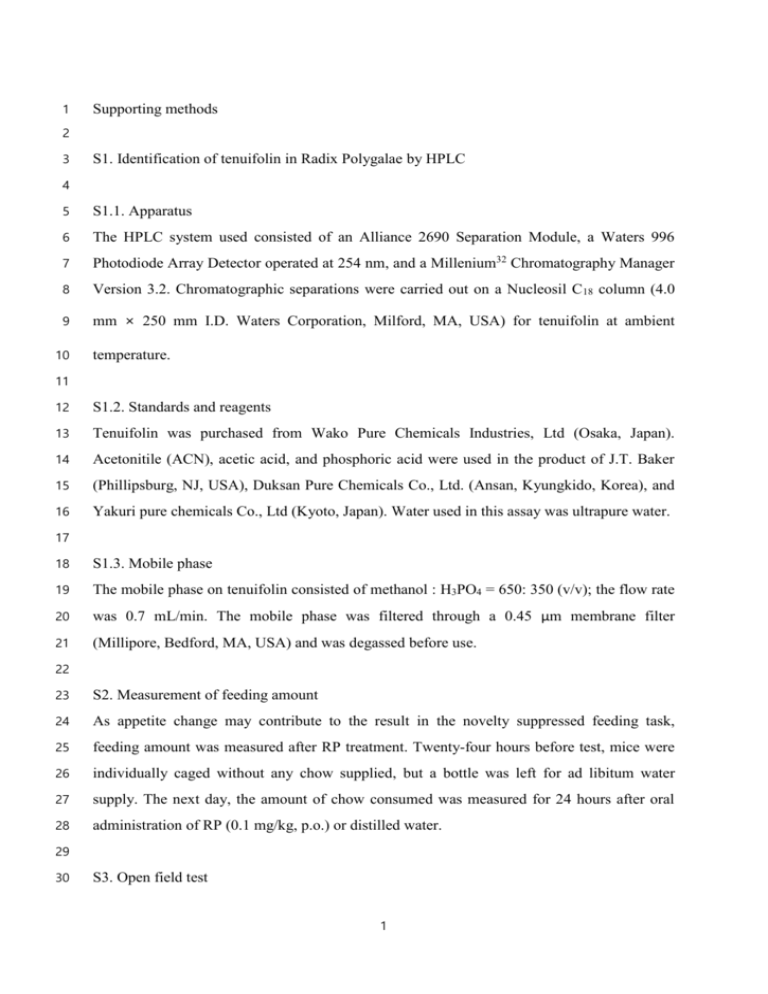
1 Supporting methods 2 3 S1. Identification of tenuifolin in Radix Polygalae by HPLC 4 5 S1.1. Apparatus 6 The HPLC system used consisted of an Alliance 2690 Separation Module, a Waters 996 7 Photodiode Array Detector operated at 254 nm, and a Millenium32 Chromatography Manager 8 Version 3.2. Chromatographic separations were carried out on a Nucleosil C 18 column (4.0 9 mm × 250 mm I.D. Waters Corporation, Milford, MA, USA) for tenuifolin at ambient 10 temperature. 11 12 S1.2. Standards and reagents 13 Tenuifolin was purchased from Wako Pure Chemicals Industries, Ltd (Osaka, Japan). 14 Acetonitile (ACN), acetic acid, and phosphoric acid were used in the product of J.T. Baker 15 (Phillipsburg, NJ, USA), Duksan Pure Chemicals Co., Ltd. (Ansan, Kyungkido, Korea), and 16 Yakuri pure chemicals Co., Ltd (Kyoto, Japan). Water used in this assay was ultrapure water. 17 18 S1.3. Mobile phase 19 The mobile phase on tenuifolin consisted of methanol : H3PO4 = 650: 350 (v/v); the flow rate 20 was 0.7 mL/min. The mobile phase was filtered through a 0.45 μm membrane filter 21 (Millipore, Bedford, MA, USA) and was degassed before use. 22 23 S2. Measurement of feeding amount 24 As appetite change may contribute to the result in the novelty suppressed feeding task, 25 feeding amount was measured after RP treatment. Twenty-four hours before test, mice were 26 individually caged without any chow supplied, but a bottle was left for ad libitum water 27 supply. The next day, the amount of chow consumed was measured for 24 hours after oral 28 administration of RP (0.1 mg/kg, p.o.) or distilled water. 29 30 S3. Open field test 1 1 As psychomotor stimulation can reduce the immobility in the tail suspension and forced 2 swim tests, locomotor activity was measured after RP treatment. Mice were placed into an 3 open field (50 x 50 x 40 cm) 30 minutes after an oral administration of RP (0.1 mg/kg) or 4 distilled water. The travel distance was measured for 30 minutes using video-tracking 5 software (Smart 3.0, Panlab, Spain). 6 2


